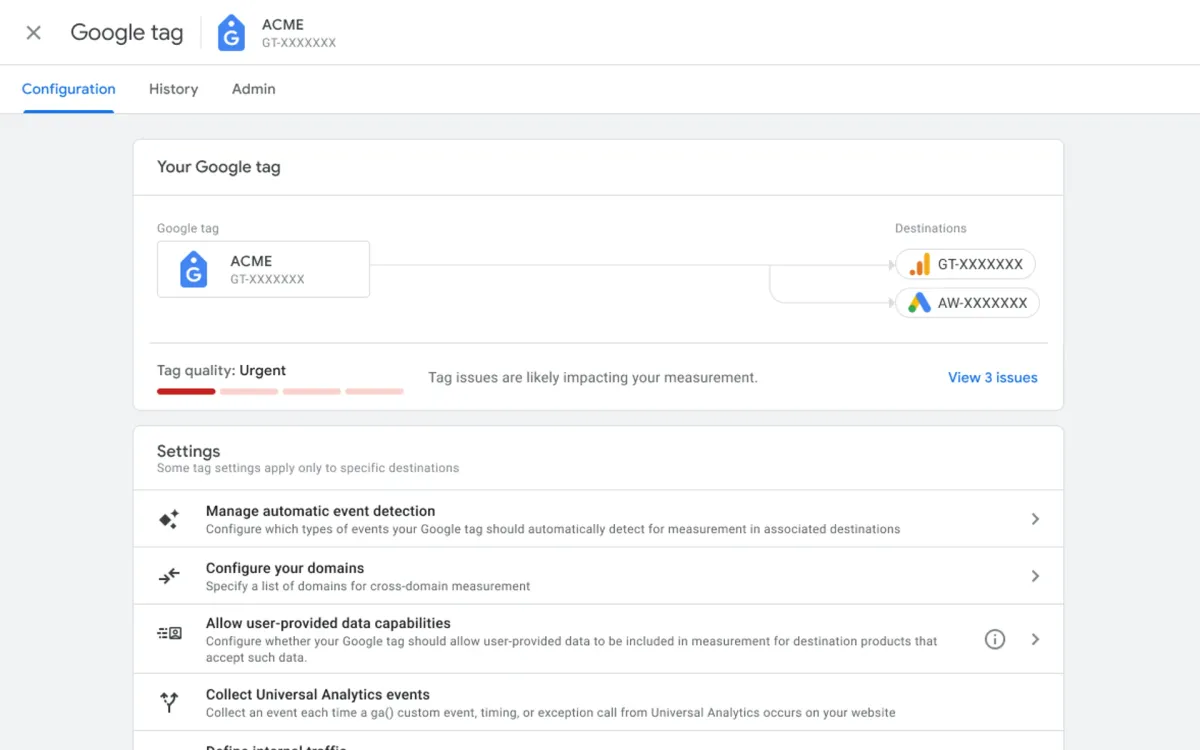
Google this week announced a new feature within Google Analytics and Google Tag Manager: Tag Diagnostics. This tool aims to improve data collection accuracy by helping users identify and fix issues with website tags.
Website tags are snippets of code placed on webpages to collect data about user behavior. This data is then used by analytics platforms like Google Analytics to understand how users interact with a website. Common website tags track page views, clicks on buttons or links, and conversions (e.g., purchases or signups).
Inaccurate website tag implementation can lead to incomplete or misleading data in Google Analytics reports. This can have significant consequences for businesses relying on website analytics data to make informed decisions about marketing strategies, website design, and product development.
How Does the Tag Diagnostics Tool Work?
The Tag Diagnostics tool can be accessed from the Google tag settings in both Google Ads and Google Analytics, as well as directly through Google Tag Manager.
The tool scans website tags and presents the user with a "tag quality status." This status indicates whether any issues have been detected and their severity. The tool offers four status levels:
- Excellent: No issues detected, tags are considered fully optimized.
- Good: No critical issues detected, but recommendations for improvement are available.
- Needs Attention: Non-critical issues require attention but do not prevent data collection.
- Urgent: Critical issues must be fixed immediately to ensure data collection continues.
The Tag Diagnostics tool also provides specific diagnostics for each identified issue. These diagnostics explain the problem, its potential impact, and steps to resolve it. Here are some examples of diagnostics currently available:
- Missing conversion linker: This occurs when a conversion tracking tag (like Google Ads tag) is present but lacks a conversion linker tag. The linker tag is necessary for accurate conversion attribution.
- Config command out of order: This happens when event tracking commands are sent before website configuration commands. This can lead to unexpected data processing behavior.
- Some of your pages are not tagged: This indicates that certain website pages lack tags entirely, resulting in missing data for those pages.
Some diagnostics related to user consent are currently being rolled out gradually. These features are specifically relevant for websites operating in the European Economic Area (EEA) where user consent for data collection is mandatory under regulations like GDPR.
The Tag Diagnostics tool is a valuable addition for website owners and marketing professionals who rely on Google Analytics data. By proactively identifying and resolving website tag issues, users can ensure their data collection is accurate and their analytics reports provide reliable insights.
It's important to note that this update focuses on a specific feature within a larger platform. Google Analytics offers a wide range of features and functionalities beyond tag management. For a comprehensive understanding of Google Analytics and its capabilities, users should refer to Google's official documentation and resources.

